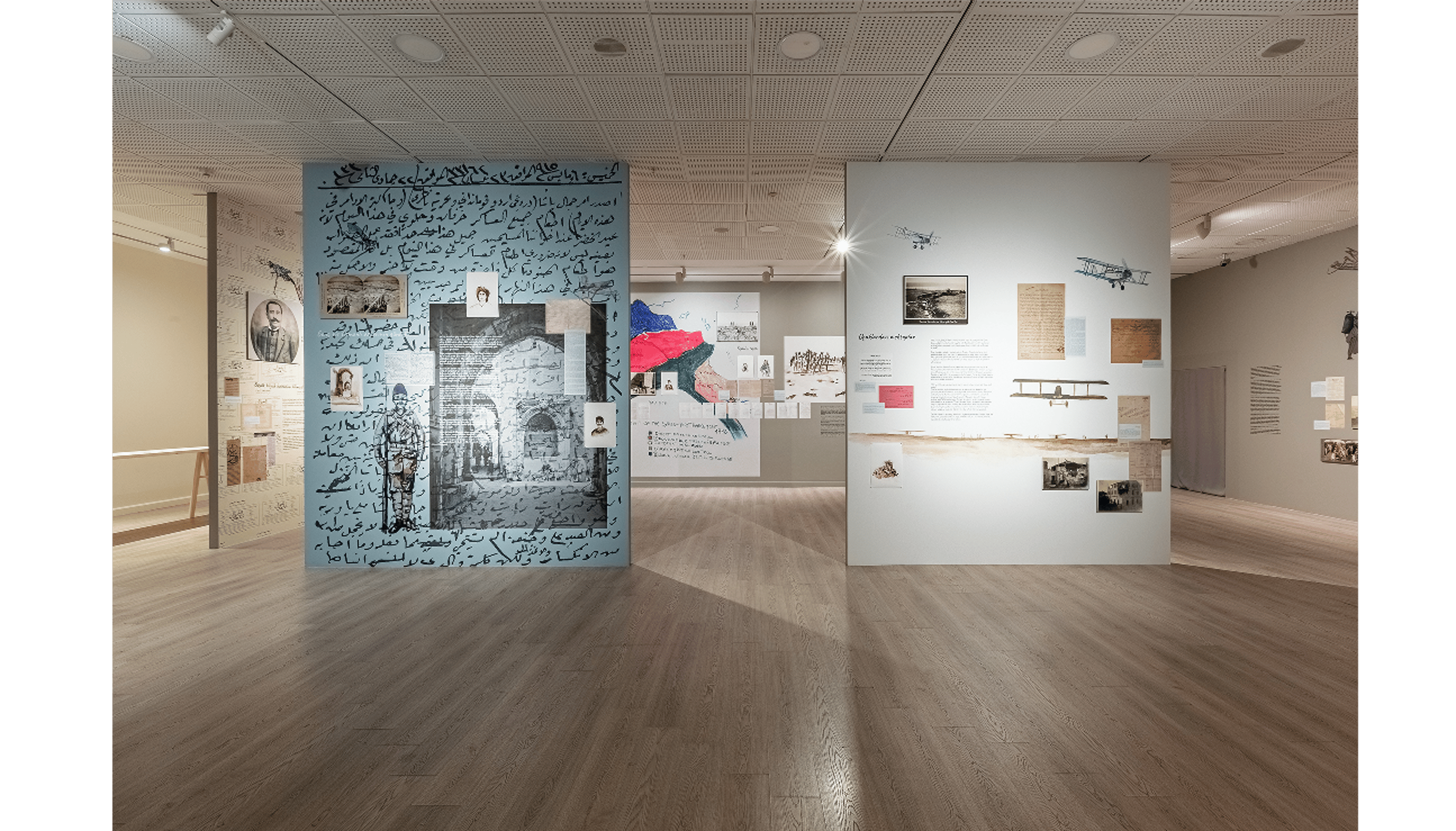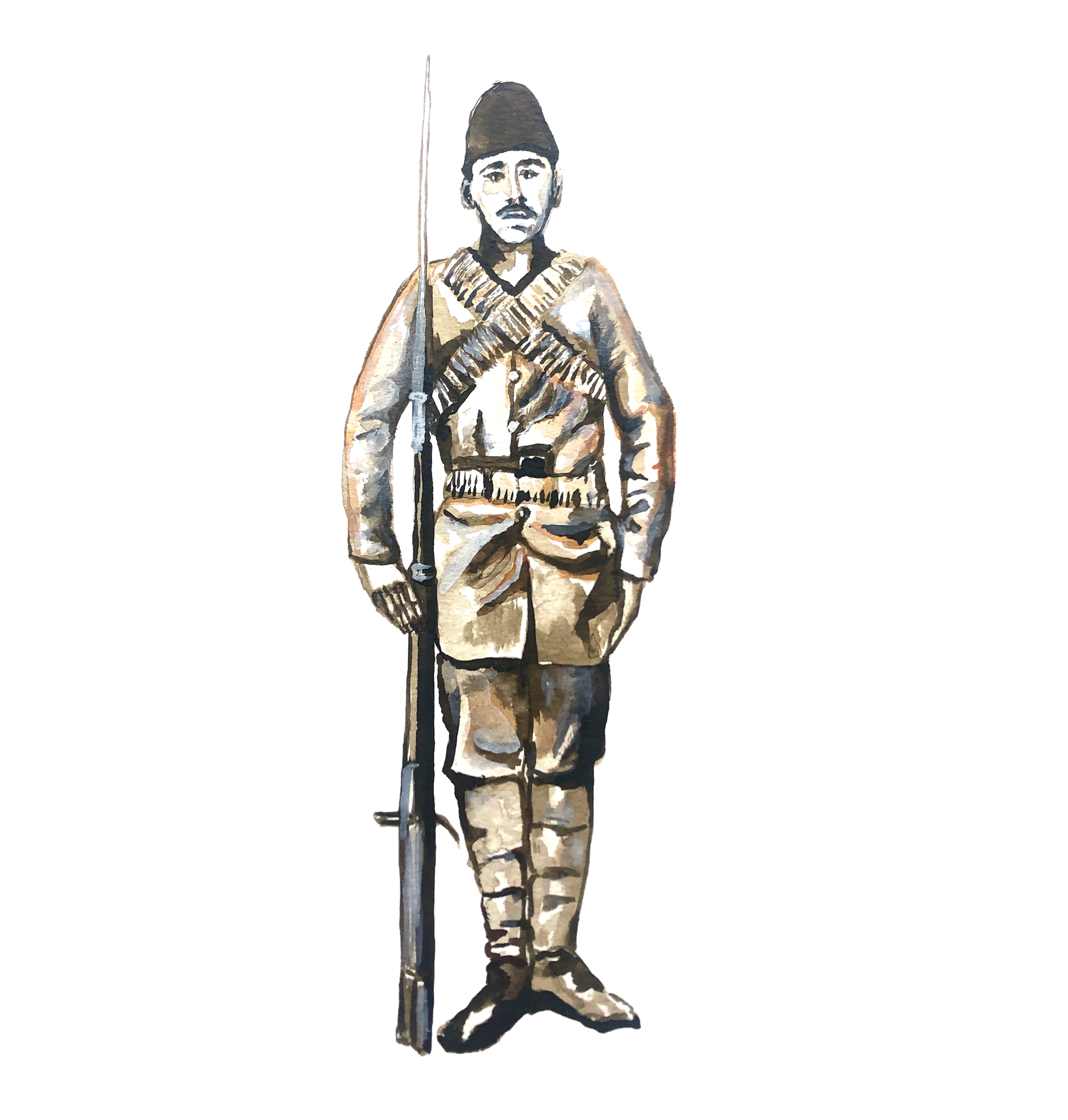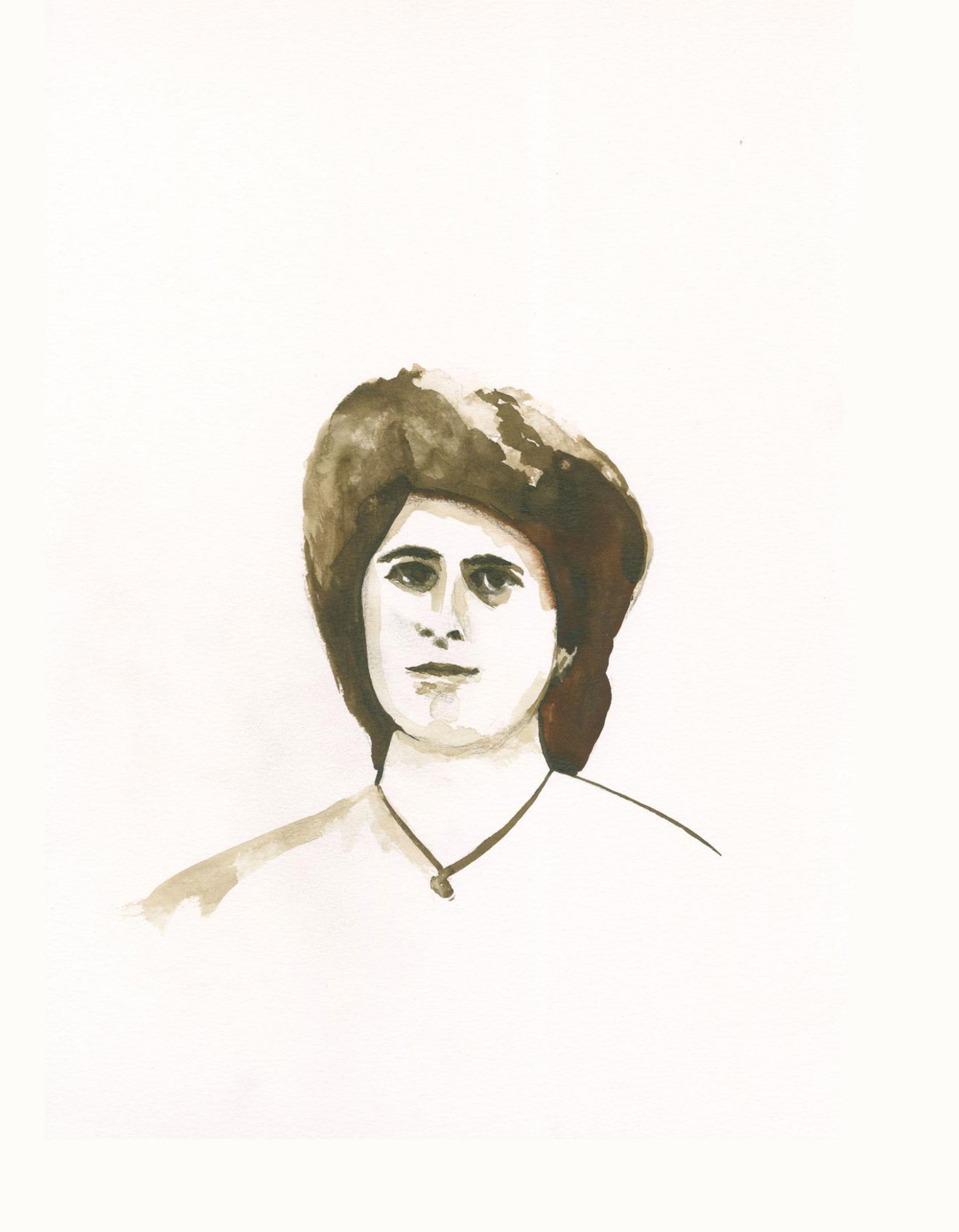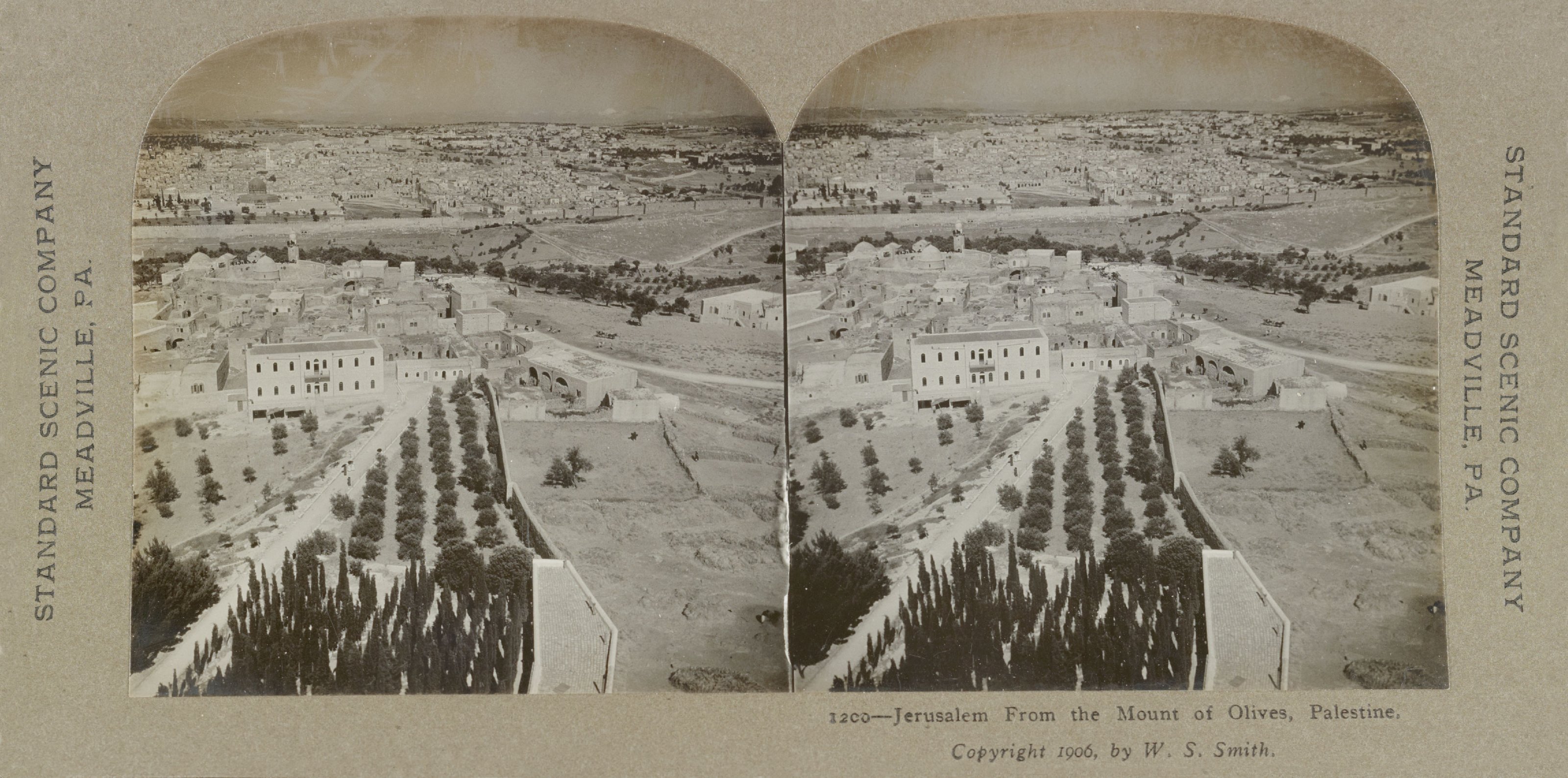
The ongoing project Uncertain Times covers the last days of the Ottoman Empire and the beginning of the French and English mandates in Lebanon, Syria, and Palestine from 1913 to 1920. Lamia Joreige’s interest in this period lies in the uncertainty about the region’s future, which sparked various speculations and alternatives to the historical timeline that played out to this day. It was a moment of rupture and fragmentation, which led to the geographic, social, and political transformation of the region, that continues to shape our present.
This digital presentation highlights only one of the ten chapters that have been presented in previous physical formats. It includes an excerpt from the diary of Ihsan Turjman, a Jerusalemite Ottoman soldier during the First World War who recorded his hopes and dreams for the future of Palestine in a secret diary. The largest presentation of Uncertain Times so far took place at the 2022 Istanbul Biennial and revisited the idea of a historical frieze through an installation of documents, photographs, drawings, and texts.
This chapter is based on the original manuscript of Ihsan Turjman, published by Salim Tamari in his historical treatise Year of the Locust: A Soldier's Diary and the Erasure of Palestine's Ottoman Past (published in Arabic by the Institute for Palestinian Studies in 2008).

Installation view at Pera Museum, 17th Istanbul Biennale, 2022. Photography by Sahin Ugur Eren.

Ihsan Turjman, a young soldier in the Ottoman army, writes his diaries in Jerusalem during the years 1915 and 1916, on the eve of the fall of the Ottoman empire. Ihsan works in the Ottoman military house as a clerk with basic daily tasks to fulfill. Despite his unique innocence, tenderness, dreamy ambitions, enlightened social opinions, and wide readings, the 22-year-old Jerusalemite finds himself trapped in the boredom and monotony of a failing state bureaucracy.
Ihsan writes in his diary’s first pages: "But what will be the fate of Palestine? We all saw two possibilities: independence or annexation to Egypt. The last possibility is more likely since only the English are likely to possess this country, and England is unlikely to give full sovereignty to Palestine but is more liable to annex it to Egypt and create a single dominion ruled by the khedive of Egypt."

Ihsan Turjman drawing by Lamia Joreige
Ihsan’s queries and fears as well as his ideals at once banal and extraordinary evoke our present problems and interrogate my own perception of our region’s future. So much of the uncertainty of that epoch, the economic collapse, the political turmoil, and the anxiety and fear felt by the population experiencing them, is similar today. The recent upheavals, wars, and tragic events could redefine our region again. Its future remains uncertain.
From the invasion of locusts and the scarcity of bread and cigarettes, Ihsan tells us about the daily humiliations imposed by a harsh military system during wartime, on an impoverished population. He writes: "Heavy rain fell over Jerusalem today, which we needed badly. Locusts are attacking all over the country. The locust invasion started seven days ago and covered the sky. Today it took the locust clouds two hours to pass over the city. God protect us from the three plagues: war, locusts, and disease, for they are spreading through the country. Pity the poor."
Lamia Joreige / Jerusalem, Drawing on paper
Lamia Joreige / Rushen Bey, Drawing on paper
Locusts Commission’s Regulations January 1914 © Başkanlık Osmanlı Arşivi.

Lamia Joreige / Sultana, Drawing on paper
When Ihsan sees for the first time the face of his lover, Soraya, without a veil, by chance, the platonic flames of this encounter give him energy and hope that this war will end to fulfill his dreams with her. Was he influenced by ideas of humanism and romanticism spreading at this epoch? Was his love for her a mere fantasy?
Turjman’s progressive ideas and idealism emerge in his writing - his platonic love for Soraya and rivalry with her other suitor happens alongside his humiliation by military officers at remarks of his choice of wearing white shoes.
A military officer sees in Ihsan's innocence and softness an opportunity to seduce him, and eventually, his harassment ends in a violent assault in the middle of the night. This crisis disturbs Ihsan who clings to hope, but his dreams begin to collapse, and misfortunes surround him on all sides.
In this particular historical moment, between a time that has ended and another that is open to the unknown, Ihsan Turjman is killed by the bullets of an Ottoman officer, before the end of the war in 1917. Was this a crime of passion? Was he killed for money or a personal matter? Was it an accident during a heated fight? We will never know the truth. Ihsan will not see Allenby entering Jerusalem and will never know the fate of Palestine.
Lamia Joreige / Locust blue, Vinyl cut drawing
Lamia Joreige / Locust red, Vinyl cut drawing

In early October 2023, Lamia Joreige was in the process of casting actors for an upcoming film she had been developing since 2021. The film, based on Ihsan Turjman’s diary, is set in Jerusalem, the city where her grandmother was born—a place she, as a Lebanese citizen, cannot access today. However, due to the ongoing tragic situation in Palestine and the ongoing war in Gaza, the project currently remains suspended. This echoes the instability and uncertainty that characterized the region during the lifetime of Ihsan Turjman.
